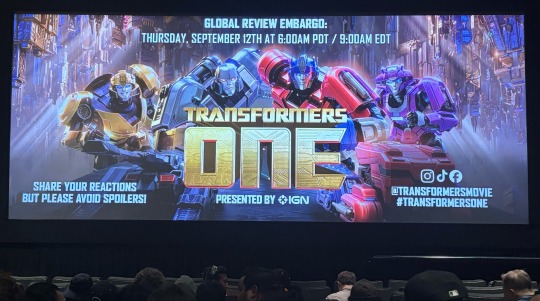#colony theater
Explore tagged Tumblr posts
Text
HAPPY BIRTHDAY, MICKEY MOUSE!!!
Happy birthday, Mickey Mouse!
Mickey first appeared in the animated short STEAMBOAT WILLIE, which premiered on November 18, 1928 at the Colony Theater in New York City. #OnThisDay Created by Walt Disney and Ub Iwerks.



#mickey mouse#classic animation#disney#happy birthday#adorable#cartoon#classic#i love mickey#love#happiness#joy#thank you#sharing#cute#animals#rodent#animated#colony theater#November 18 1928#steamboat willie
51 notes
·
View notes
Text
I was playing Gandalf the Grey in an impromptu interactive theater production set in a replica of Bag End in the woods reading off a script given out by the guide but instead of a canon lines for Gandalf to say I read a speech about the evils of British colonialism.
I was as confused as anyone in the room.
#dream#gandalf#gandalf the grey#interactive theater#theater#bag end#woods#british colonialism#colonialism#british
411 notes
·
View notes
Text





#time travel#read#text#txt#trade#military#police#colony#colonial farm#copper#waste management#fallout#fall out boy#fall out#cubic popcorn#movie theater popcorn#cube#the smell of tobacco#the smell of tobacco - cube - cubes
12 notes
·
View notes
Text







The Sweasey Theatre opened on December 16, 1920.
#Sweasey Theatre#Sweasey Theater#412 G Street#opened#Eureka#USA#16 December 1920#anniversary#US history#original photography#façade#James and Merritt Reid#tourist attraction#landmark#summer 2017#vacation#travel#spanish colonial revival#downtown#California#West Coast#exterior#architecture#cityscape
3 notes
·
View notes
Text
I thought I had solved a problem, but it turns out I hit a dead end (and I can't even find the place I originally saw it).
I really really want the original source for André being a bad actor - not that I disbelieve it, I just want every possible piece of contemporary gossip about this man because I am nearly as obsessed as William Abbatt. (Also, like, I would like to know the context for this stuff.) So at some point - probably when I was wandering around JSTOR - I found a citation to a modern (ie non-public domain) book that mentioned him being a terrible actor and then had a quote from what I remember as also being the source for him sucking which was something about him being "very active, always hopping about the stage, and never out of humour". Of course this was on archive.org, which meant it was painful to look up the footnotes and I stupidly didn't do it and then that tab got closed and I forgot what book it was.
But I remembered enough of the quote to try searching Google for it (this is also how I found the source for "cringing and insidious sycophant", which Flexner didn't feel like including a citation for, the dickwad), but unfortunately I didn't get the modern book, I got The Colonial Homes of Philadelphia and Its Neighborhood from like 1912 (that's archive.org; it's also on Google which may be easier to search inside), which looks like a lot of fun, but unfortunately doesn't mention him being a bad actor in the part of the quote that they use, doesn't say who it's from other than "a contemporary employee of the theatre", and of course the stupid thing isn't footnoted (it just has an incomplete bibliography) so I don't know where they got it. And I have some questions about it.
#john andré#The Colonial Homes of Philadelphia and Its Neighborhood#you bastards why don't you care about making it easy for people to replicate your work#maybe it was one of the theater books?
4 notes
·
View notes
Text







rare lil family night out. 🤍
#my dad surprise bought us tickets back at christmas#he’s not a huge event guy so was super cute to get for us and my sis#haven’t done anything as a family since literally forever like I can’t even say#and haven’t seen my sis in so long#she’s fuckin’ loves the movie adaptation of the musical so she was so pumped was cute#I hadn’t even heard of it#but it was really good and we were like four rows from the stage#pure beauty in there though#never been there before#reminded me of the awe of walking into the opera house a while back#both places are 🤌🏻#gotta get dressed up a little just because#don’t have to but it’s a whole vibe bro#my eyes were happy#emerson colonial theater#into the woods#on a related note#my dads an amazing driver but bitch when I tell u I was STRESSED the whole way to and from Rhode Island holding on for dear life#I lowkey feel like I drive the same tho#speed wise#but I’ll tell u what I’m not tailgating no crackheads at midnight in ri !#bless this crazy lil man#and me who lived to tell the tale#saw some deer too they probably wished us well as we sped by#said gotdamn to themselves and kept eating some grass#mine#boston#anyways was nice to spend time like that
5 notes
·
View notes
Text

If I don't see every song from Cowboy Soul on streaming services within the next 3 business months I'm gonna start committing explosions
1 note
·
View note
Text
Common Ground: Stories from America's Vintage Movie Theatres
We pause now from our unceasing torrent of self-promotion to engage in a little…indirect self-promotion! I’ve been working with Gary Hardcastle for months on the audio-book version of my 2013 thingumybob Chain of Fools. Today he reveals that he’s not only a great radio producer but a terrifically entertaining narrator/presenter/host himself. I should have made HIM read my damn book! Anyway, in…

View On WordPress
0 notes
Text
Theater Review: Into the Woods
Into the Woods Emerson Colonial Theatre Boston, Massachusetts April 2, 2023 at 3 PM Music & Lyrics by Stephen Sondheim Book by James Lapine Orchestration by Jonathan Tunick Choreographed by Lorin Latarro Music Supervisor: Rob Berman Music Director: John Bell Directed by Lear DeBessonet Cast Witch … Montego Glover Baker’s Wife … Ximone Rose Baker … Jason Forbach Cinderella’s Prince/Wolf … Gavin…

View On WordPress
#Boston#Emerson Colonial Theatre#Into the Woods#Musical#Performance Reviews#Stepehn Sondheim#Theater#Theater Reviews
1 note
·
View note
Text
Nobleman on Zuko's Council: Firelord, someone blew up one of our factories!
Zuko, knowing full well it was Katara: Who could have done this?
Second Nobleman: Firelord, several of our war machines were crushed mysteriously by falling rocks overnight.
Zuko, deadpan, knowing it was Toph: Whatever shall we do?
Third Nobleman: And there was an uprising at one of the schools. Apparently one of the students, a young colonial wearing his school uniform belt as a headband, started a "rewrite the history books" campaign.
Zuko: Young people these days.
Fourth Nobleman: Also someone in a spirit mask is robbing the rich at swordpoint while reciting lines from theater.
Zuko: That one was me.
#zuko#aang#toph#katara#firelord zuko#zuko and the gaang#zuko redeems the fire nation by letting his friends tear shit up#and does a little bit himself now and then
3K notes
·
View notes
Note
could you expand / share reading materials on "gender is a structure that mediates access to personhood"? i feel like that's an important point that i don't fully grasp. especially because it is my understanding that until relatively recently even white, bourgeois, cis-heterosexual, perisex etc women were also denied personhood, but were already gendered as women, right?
thanks in advance!
I’m so sorry you sent me this ask like three months ago and I’m only getting around to it now lol
This is going to be a long post. I will be talking a lot about citizenship and rights in this post. I’ll include citations, but two overarching texts I will be engaging with a lot are Unequal Freedom (2004) by Evelyn Nakano Glenn and The Three Worlds of Welfare Capitalism (1989) by Gøsta Esping-Andersen.
This is also not meant to be a comprehensive answer to your question. I am much less familiar with migration & refugee scholarship, which is obviously deeply engaged with the concept of citizenship as an apparatus for granting rights. I’m flagging this because my answer has a particular focus that is not generalisable. Everything I say is not “the answer” to your question, but an answer informed by specific domains of scholarship.
First, I think a good place to start is that when we talk about ‘personhood’ as a status that a human being can or cannot possess, we are often talking about a status that is realisable through citizenship. ‘Personhood’ is itself a legal term, and we can see this in how stateless people (i.e. people with no citizenship) are treated - because rights are granted by and administered through states, being without state citizenship means you are unable to realise any set of rights, and therefore, you are rendered as a non-person. The UN has two separate conventions on the rights of stateless people for example, as being stateless is necessarily an international issue. I think this approach helps makes sense of why “human rights” is a popular framing in discussions of how to remediate inequality (e.g. “trans rights are human rights”). The “human” part of that equation is only realised through the attainment of “rights,” i.e., through citizenship. Citizenship = personhood can also be seen when people invoke “second class citizens” as an articulation of legal, political, and societal discrimination - i.e., groups of people who have less/no access to rights compared to other groups within a state. Systems of classed citizenship often emerge from regimes of settler colonialism, slavery, and apartheid (Glenn discusses this in her book).
The basic Marxist intervention in this discussion is that this class system still exists even in places that have abolished slavery, abolished apartheid, and/or gone through formal decolonisation, because state law under capitalism is fundamentally unjust. Marx calls law the “mystification of power” (I believe he says this in The German Ideology? I'm rusty on my Marx readings lol) - he argues that law is a bourgeois system of justice that caters to the wealthy and powerful and disenfranchises the poor and marginal, but appears as neutral and fair through a liberal “theater” (Marx’s term from The 18th Brumaire) of equality and democracy, mystifying its actual effects and purpose (The Red Demiurge (2015) by Scott Newton is a book about Soviet legal history that goes into some of this. His focus is on the evolution of the Bolshevik relationship to law as the USSR developed and encountered quite literally new legal problems that emerged as a result of the formation of a socialist state). This is also part of the Marxist critique of nationalism - if state citizenship is what grants access to rights, and citizenship is classed (through your relationship to production, through white supremacy, through patriarchy, through colonial status, through religious status, through etc), then equality does not legally exist, that all equality is bourgeois equality, i.e., not universal, not equal.
Gøsta Esping-Andersen provides a really helpful theory of thinking about citizenship rights within a capitalist state (his book only focuses on Western imperial core states, so just flagging that lol). He begins by arguing that:
all markets are regulated by the state, there is no actual “free” or anarcho-capitalist market,
because of this necessary regulatory function provided by the state, the commodity of wage-labour (i.e., the process of selling your labour-power as a “good” or commodity on a market in exchange for money in the form of wages) is likewise always regulated to some degree, and so finally,
welfare should be understood as the regulatory system of the commodity of wage-labour.
This regulatory apparatus is what grants people “social citizenship rights” - sick leave, pensions, disability and unemployment insurance, welfare payments, food stamps, tax bracket placements, childcare, healthcare, education, housing, so on and so on. Within this framework, Esping-Andersen demonstrates that various welfare regimes produce different citizenship classes - Canada, Australia and the US, for example, explicitly reproduce an impoverished “welfare class” through a marginal, means-tested welfare regime that only provides benefits to the very poorest. Various European countries by contrast tend to have what he calls a “corporatist” welfare regime that often grants different social citizenship rights based on which occupation you have, which he argues emerged from feudal and pre-capitalist religious (esp. Catholic) social forms of organisation.
ANYWAY, the purpose of doing all that set-up is to contextualise how we arrive at the question of gender. Feminists make the basic point that citizenship is also classed by gender - in Unequal Freedom, Glenn talks about this in the US, where white women were legally treated as extensions of their husbands and had no access to property rights, voting rights, and so on. Black women, in contrast, were treated sexually as women by slaveholders (i.e., raped and abused) but denied any and all personhood on the basis of their slave status. Citizenship in the US was historically based first on your ability to hold property (reserved for white bourgeois men), and then on your ability to “freely sell” your labour-power on the market - white women were denied citizenship on this basis because they were consigned to managing what was defined as the “private realm,” i.e., the realm that houses free labourers (white men). This public/private distinction emerges through capitalist markets and the commodity of wage-labour, which produces a sharp distinction where productive labour takes place “out there” (paid for in wages by the capitalist class) and reproductive labour takes place “in here” (i.e., labour that is not paid for in wages* by the capitalist class and forms the social basis of reproducing the public labour pool).
*for white women. see below
As Glenn argues, this public/private distinction in the US is fundamentally racialised. We can see this difference in the emergence of the suffragette movement, where white women appeal to their whiteness (i.e., free labour status) as the rationale for being granted the right to vote. Black women were disqualified from this movement, and did not benefit from white women’s demands for equal citizenship on the basis of them providing all this unpaid reproductive labour to their white husbands, as Black and other racialised women often provided domestic housekeeping labour for white women (unpaid during slavery and for indentured servants, for wages after its abolition). This leaves Black women without a private realm, subjecting them to a “purely public” arena that is uniquely difficult to organise for unionisation and/or improve working conditions (Deborah King talks about this further in Multiple Jeopardy, Multiple Consciousness (1988)).
Trans-feminism explicates this further - coercive sex assignment at birth classes people on the basis of reproductive capacity. “Females” are impregnated, “males” do the impregnating. This particular system of sex assignment is deeply tied to colonial population management concerns, where measuring the labour capacity of colonised subjects was a matter of managing white wealth (as well as making sure “there weren’t too many of them” compared to white people in colonies - this was especially a major white anxiety after the Haitian Revolution at the turn of the 19th century, the largest slave revolt in history. See Settlers by J Sakai). You can read Maria Lugones’ papers The Coloniality of Gender (2016) and Heterosexualism and the Colonial/Modern Gender System (2007), Alex Adamson's (2022) paper Beyond the Coloniality of Gender, and Guirkinger & Villar's (2022) paper Pro-birth policies, missions, and fertility for some introductory reading.
(Note: patriarchal gender hierarchies predate and exist outside of European colonial domination - it is a popular white queer talking point that Europe invented gender, that indigenous peoples actually all had epic radically equal genderfuck systems that were destroyed by Europe, and this is a very patronising and racist historical generalisation that I want to avoid making. Third World/Global South feminism is a necessary corrective to this - an arena of scholarship I am sadly not well versed in. Sylvia Wynter is the only scholar I’ve engaged with on this topic, which again, is a very limited slice. I welcome reading recommendations in this area).
While sex assignment is coercive for everyone, it is a particular problem for trans people, who are accused of impersonation and ID fraud if our sex markets conflict with our gender presentation, or we don’t “look like” our sex marker to cis people. Because you need a government ID to do basically anything - getting a job, applying for an apartment, getting a driver’s license, going to school, buying a phone plan, being on unemployment, applying for disability, filing an insurance claim, doing your taxes, opening a bank account, getting married, going to the hospital, buying lottery tickets at the corner store, etc - and sex markers appear on basically all government ID in many countries, trans people are systematically denied a whole range of citizenship rights (and thus personhood) on the basis of this sex assignment. Trans people are not merely treated as the wrong gender, they are ungendered, and by this process, rendered ineligible for personhood. Like just as an example, gay marriage is a luxury to trans people, as gay marriage is based on the state recognising both you and your partner’s gender in the first place. (See Heath Fogg Davis’ paper Sex-Classification Policies as Transgender Discrimination (2014) for example. Butler also talks about this on a more fundamental level in Bodies That Matter (1993), and Stryker & Sullivan also discuss this in The Queen's Body, the King's Member (2009)).
This is likewise the impetus behind anti-trans bathroom bills and sports bans - citizenship guarantees, among other things, a right to public space, and these bans are meant to deprive transgender people access to those spaces. These bans should be understood as a way of circumventing the much more difficult process of revoking the citizenship of trans people outright by using a component of citizenship (sex assignment at birth) to impoverish the quality of citizenship that trans people have access to. This is why bans on medical transition are not actually just about medical oppression, but the oppression of trans peoples’ abilities to live in society in general. An instructive parallel is abortion bans for pregnant people, who, in addition to facing medical oppression and violence by being denied healthcare, are likewise systemically marginalised through being forced into the role of “mother” (again we see how cissexualism reduces people to reproductive capacity), economically marginalising them by reducing their capacity to earn a wage, tying them to partners/spouses that now have greater economic and social leverage over them (and thus have greater capacity to assault, rape, and murder them), depriving them of the choice of alternative life paths, and so on.
It’s generally much more difficult to get the state to sign off on unilaterally oppressing a group of citizens by depriving them of citizenship completely, so attacking a group through more narrow and particular policies like healthcare or the use of public space (with the ultimate goal of depriving them of their rights in general) is often much easier and more productive. See Beauchamp's 2019 book Going Stealth: Transgender Politics and US Surveillance Practices, who talks about this in the context of anti-trans bathroom bills in chapter 3. This is also a common thread in disability scholarship, as disabled people are likewise denied much of the same citizenship rights through similar logics - the book Absent Citizens (2009) by Michal J Prince talks about this in the Canadian context. To give an example he uses in the book, in Canada, accessible voting stations were only federally mandated in I believe the 90s, meaning that disabled people were practically disenfranchised until about 30 years ago in Canada, even though there were no laws explicitly banning disabled people from voting.
As a result, any barriers put in place by the state to change your legal name and sex marker should be understood as a comprehensive denial of personhood, not only because we as trans people want our IDs to reflect who we are, but because those barriers make it difficult to do literally anything in civil society. This the basis behind the cry of “trans rights are human rights” - taking away our healthcare rights also fundamentally denies us equal citizenship (and thus personhood), because healthcare is where we get all those little permission slips from doctors and psychologists to change our name and gender marker in the first place. This is of course not remotely the same as being made stateless (trans refugees are placed in a particularly harrowing and violent legal black hole, for example) - I as a white trans person living in the imperial core still benefit from a massive range of material, political and social privileges not afforded to many others, but my transness positions me at a deficit relative to cis people who have the same state citizenship as I do. As I hope I've made clear, it's not a binary case of either having or not having citizenship, but that citizenship is classed, and the quality of your citizenship is heavily dependent on a whole range of social, political, legal, economic, and historical factors that are all largely out of your control.
So not only is gender a barrier to citizenship, it mediates access to realising the full range of personhood within a regime of state citizenship. Trans people are not the only group effected by this, as I described above, but trans people are a group that makes obvious the arbitrary, coercive, and unequal nature of sex assignment through its connection to state citizenship.
238 notes
·
View notes
Text
Miscellaneous Hatchetfield headcanons (mostly family related)
- Richie's deepest darkest secret is that for a few years when he was little, he and his mom lived in Clivesdale.
- Richie and Trevor are twins separated from birth parent trap style. Trevor was raised in Philadelphia before his dad moved backed to Hatchetfield, thinking his wife and Richie were still in Clivesdale. The two brothers have not interacted ever despite their proximity with each other.
- Gary Goldstein is actually a clone of Paul, the first one ever made long before they started to make the others for the moon colonies. He escaped and changed his identity, went to law school in another state, and came back to be a sleazy attorney for very rich clients. Said rich clients include Linda Monroe, who he had an affair with and became the biological father of Jordan. He's a deadbeat but he does treat him nicer than Linda's other sons when they happen to be in the same room with each other.
- Gary also does not like musicals but he doesn't make a big deal about it. His go-to coffee order is a large caramel frappe.
- Nora and Jane were actually really good friends, with Jane actually helping Nora to open Beanie's. Nora only gave Emma the job because she felt pity about Emma losing her sister.
- Sylvia is Karen's estranged older sister who cut off her ties with their family after being fed up with their obsession with purity and conservatism. At 18, She moved in with her then boyfriend at the time (they've broken off since then). Grace still prays for her sinner aunt to change her ways.
- Girl Jeri and Boy Jerry went to Sycamore High along with Mark and Karen. They did Bible study sessions together.
- Pete's parents have always had a rocky relationship and by the time Pete is 18 they're finally in the middle of being officially divorced. Pete would sometimes stay at Ted's shitty apartment when things got really messy.
- a lot of the teens think Pete is the owner of Pizza Pete's which adds to why they think he's rich. Max in particular makes fun of him for this a lot despite Pete trying to tell him on numerous occasions that he doesn't own the place.
- Pete and Alice were childhood friends but drifted away by the time they were in high school. They bonded over their shared love of sweets and dysfunctional living situations.
- Ruth had a HUGE crush on Alice, and both were a part of the tech crew in their school theater group. When she found out Alice was dating local stoner and rebellious cool girl Deb she wailed in the bathroom for a solid hour.
#nerdy prudes must die#npmd#the guy who didn't like musicals#tgwdlm#black friday#richie lipschitz#trevor npmd#gary goldstein#nora beanie#sylvia hatchetfield#karen chasity#boy jerry#girl jeri#pete spankoffski#peter spankoffski#alice woodward#ruth fleming#starkid#ok thas enough#a-maize-ing post
190 notes
·
View notes
Text







The Sweasey Theatre opened on December 16, 1920.
#Sweasey Theatre#Sweasey Theater#412 G Street#opened#Eureka#USA#16 December 1920#anniversary#US history#original photography#façade#James and Merritt Reid#tourist attraction#landmark#summer 2017#vacation#travel#spanish colonial revival#downtown#California#West Coast#exterior#architecture#cityscape
3 notes
·
View notes
Text
ChildhoodFriend!Sukuna drabble-headcanon thingy part 2 | part I here w/c - 750 cw: manga spoilers (although I'm only on chapter 180 so if it kind of doesn't make sense with the rest I'm sorry!!)
ChildhoodFriend!Sukuna who wakes up a thousand years later, now trapped in a boy's body, unaware of the fact that you, too, had made a deal with the devil to satisfy your yet unmet need for revenge.
Hein Era
"You must be Kenjaku," you said, relief washing over your body. It has been three long years since you've decided to find the man, the journey wearing you out, turning you into an empty shell in tattered rags.
"May the traveler who knows my name introduce herself?" He proposed, not making the effort to turn around from his position over the cooking pot. The shabby hut you stood in and his mild demeanor hardly lived up to the reputation of the most vicious man to set foot in Japan in eons.
And so you do, with a deep bow and a mutter of your name, "I've come to an understanding that to kill the man I wish dead might take more than one lifetime," you proclaimed, "and I've been told you're the one to turn to."
Tokyo, 2018
ChildhoodFriend!Sukuna felt something strange the moment Itadori Yuji fell face-first into Tokyo Colony No. 1. However, he couldn't pinpoint what exactly it was, like the dull wistfulness of an old perfume. Itadori Yuji sensed it too, but had little time to muse over such things when he was too busy fighting to try to locate Higuruma Hiromi.
"Kogane, show me player Higuruma Hiromi," you order, looking at the information popping up, "his points are gone. Is he the one who changed the rule?" You don't wait for an answer before continuing, "It doesn't matter; he might still know something. Ikebukuro's close now."
You walk through the concrete and metal jungle; these people have built themselves miles upon miles of castles, you think, Sukuna probably enjoys watching them crumble.
When you approach the theater you were told Higuruma resides in, a boy walks out. As soon as he catches a glimpse of you, he halts, standing on guard on the other side of the road.
ChildhoodFriend!Sukuna has seen many faces, but yours was one that hadn't faded from his memory by the passing of time.
"I don't want to fight!" The boy exclaimed from across the road, but his shoulders were drawn back, fists curled near his pockets.
"I do not wish to fight either!" You shout back, thinking that another battle may wash off the remains of your strength. Besides, what good would it do to fight a young boy? Although only the look of his pink hair made your teeth clench and stomach tighten.
You watch the boy take a seat on the pavement, "Are you hurt?" You inquire, slowly drawing closer across the pavement.
"Just taking a breather!" He shouts, but you decide to approach regardless.
ChildhoodFriend!Sukuna who laughs. He howls like a maniac inside Yuji's head, sending strange vibrations throughout the boy's body.
"Are you alright?" You ask the boy, watching him nod as he gulps the water you handed him. The resemblance is striking, you think, but perhaps I'm just thinking too much of it.
"Thank you," he puts the empty water bottle by his side, "I'm sorry I drank all your water."
"It's nothing." You assure him, "Have you seen Higuruma here? I've a question for him."
"I don't think he's the kind to answer questions," Yuji reflected, getting up from the sidewalk.
"I won't leave him much of a choice." You asserted, watching the boy's doubtful expression, "Do you have any insight you may offer on his technique?"
"Well, I don't think I understand it, really, but.." Yuji starts explaining, watching your brows furrow as you nod along at his descriptions.
You thank him, parting curtly before turning away towards the theater.
"Wait!" Yuji exclaims behind you, "What's the question? Maybe I'll save you the trouble."
You doubt his words, but turn back to face him, "There's a man I'm looking to kill," you disclosed, "trust me, you'd want him dead too,” you chuckle, pausing for a moment, but deciding there's no harm in asking, "Sukuna, do you know where he is?"
Yuji freezes, his heartbeat quickening at the mention of the name, his wide eyes pointed straight at you.
"Didn't think so," you sigh.
ChildhoodFriend!Sukuna who pops out as a mouth carved in Yuji's cheek, causing you to jump back slightly at the bizarre sight while he taunted loudly;
"You're not going to tell her, brat?"
_
tag list: @saoirseirose, @marimeown, @http-dilflvr Thank you guys for the wonderful comments on part one, hope this one doesn't disappoint
#sukuna x reader#ryomen sukuna x reader#jjk x reader#sukuna x you#sukuna ryomen x reader#sukuna x y/n#ryoumen sukuna x reader#ryomen sukuna#ryomen x reader#ryomen sukuna x you#ryomen sukuna x y/n#jujutsu kaisen x reader#jujutsu kaisen fanfic#jujutsu kaisen x you#sukuna#ryoumen sukuna x you
633 notes
·
View notes
Text

I Saw Transformers One Early Last Week. Let’s Talk About It!!! (SPOILER FREE)
EXPECTATIONS
I’m going to be honest, I had very very low expectations for this movie for a multitude of reasons. The first was the cast, particularly choosing celebrity hires instead of professional voice actors for a franchise where dialogue delivery means SO MUCH historically and the present. I like Chris Hemsworth, I do, but I am so attached to Orion Pax that I did NOT see him as someone fit for the role. I was also afraid of it becoming a WFC situation where the VA tries TOO HARD to be Peter Cullen. I am also a huge fan of Elita One, and Scarlett Johansson was not my first choice by any means. The one thing giving me hope was the fact that Scarlett and Chris interact SO WELL in their films together and in press releases and they do give off that Orion and Elita energy sometimes. Regardless, I was skeptical.
Now for the big thing: I was very nervous how they were going to handle the politics and the buildup that leads to Megatronus and Orion’s separation. It is no secret that Pre-War Cybertron in many continuities begins with a very corrupt and fascist Senate. Corrupted Senators, capitalistic manipulation and unethical abuse, dehumanization, corporal punishment, you name it, Cybertron had it. The concepts of functionalism, shadowplay, mnemosurgery, and empurata also come to mind. It is also no secret that the United States is on the brink of total fascism. A lot of Pre-War Cybertron’s themes, particularly the Decepticon cause in its early days as a movement, emphasized the elimination of the oppressive regime and reconstruction with an end to the very infrastructure that caused class division and brutalization of Cybertronian bodies. Not only this, but Megatronus and Orion’s schism often comes because of class, particularly privilege and lack thereof, which is something that often happens in revolution. Those with more privilege often think that reform can happen underneath the system that looms over them, just with a switching of a guard and elimination of a few policies. They are often ones who partook in and benefitted from the system by birth or for the sake of survival. Those who come from the lower classes want to burn the entire system down, understanding in its entirety that its very infrastructure is unstable and is not sustainable, no matter who is in power. Examples of this divide despite deep friendship and similar ideas is Andres Bonifacio and Jose Rizal of the Philippines (as a Filipino). Orion, in most cases coming from a privileged background, saw hope in simple reform after extracting the corrupt portions of the federal structure. Megatronus, who fought his whole life to be deemed as sentient, understood that the entire system was diseased and could not go on. It would just eventually continue its horrid practices. I can go on a tangent about this, as someone who studies and writes on anti-colonialism, but that’s another post for another day. My concern based on the trailers was that it would address NONE of that and there would be some watered down conflict that removed the nuances and political passion behind a lot of other continuities. The trailers, to me, were not giving me enough proof that it would be handled correctly.
Initial Experience
My theater was filled with mostly adults of various ages who were fans of different continuities. Some people were even talking about how they thought the movie was going to suck, including me with my dad, who has been a fan since G1 in the 80s and was going in blind. However, throughout the entire film, the whole theater was laughing, gasping, cheering, clapping, and screaming. Afterwards, there were people who were literally talking about how it was the movie they’d been waiting for after years of disappointment. Someone literally shouted when leaving the theater that he was so excited for September when everyone else could see it. My dad, who has not been a fan of recent Transformers material, talked nonstop about how much he loved it. Me personally, I was BRIMMING with excitement afterwards, which is huge given that I was ready to criticize the movie’s every move. Let me get into why- note this is SPOILER FREE.
Orion Pax
Believe it or not, I really liked TF1’s Orion. He was witty, had the snark of Aligned Orion, and clearly had a goal in mind: to entirely shift the status quo by breaking the class distinction. He was extremely optimistic like most versions, something that is often criticized in the fanbase, and is also criticized in the film. However, the qualities that G1 created and the Bayverse destroyed were THERE. Orion was a DORK. He was KIND. He CARED for people deeply, even if they weren’t necessarily thinking about him. He was a KNOWN PROBLEM-SOLVER. His intelligence is noted MULTIPLE times. He really is authentically Orion. I’ll do a more in-depth analysis in September.
Megatronus/ D-16
Now, THIS MAN WAS AMAZING. I am so used to the source of his anger being solely lower class-based oppression amongst other things relating to that. The film offered another option, which I will not disclose, but I thought it was a wonderful addition. I will keep my mouth shut about D-16’s personality in this film because it’s a secret, but just know this new take on Megatronus was a bit refreshing and gives new material for both fan continuity writers and fanfic writers.
Elita
I was honestly scared to see how they would portray Elita, especially with their track record of solely making her Optimus’s love interest and killing her off. I also was afraid that they would turn her into a white feminism caricature, which I can go into depth about for clarification if anyone needs it. However, the writers take feminism for Elita and take a much more in-depth route. I found her well done. She was giving mother in this film, absolutely brilliant. There will be an analysis on her as well in September, especially since they have so much intended room for her.
Worldbuilding and Additional Characters
I think that with about an hour and a half, it would have been SO HARD to create an entire world of deep political brutality and nuance like the comics directly. So, I think the writers created a framework that was good enough to convey the fascist undertones of Cybertron while also leaving so many avenues to explore and elaborate on for future films, whether they be prequels or sequels. Some characters were added in with a bit of context, but no in-depth explanations. While I would normally say that’s a downside, I think that it was actually really smart on their part. If you tried to add all of these complex stories from the comics in an hour and a half film combined with everything else, it would have likely been underdeveloped and left more questions and holes than answers. By removing that, I think that it was a smart move to expand on in their own time and with good pacing. Besides, the presence of some characters was very enjoyable and kept the audience I was with wanting more from them. Not in a “there wasn’t enough of them” way at all, but instead a “they were so cool in the short time they were here I need more now” way. Everyone in this continuity gets a new and different start. I honestly think it would give fan continuity writers motivation to continue what they’re doing, now that basic and consistent pre-war plot lines have been redone. I think for how long the movie is, they did a great job.
Additional Thoughts
I think that everything was pretty well done. The pacing was especially important, given we were supposed to witness a buildup in such a devastating “divorce”. That isn’t done lightly, and they made sure that they built it up enough to where the final blow was devastating. It was SO DEVASTATING that people in my theater were gasping left and right. The comedy was well done, as someone who hates poorly-written jokes for laughs. It fit into the characters’ personalities well, that’s what made it work well. It didn’t feel forced because that’s just how that particular character is. I also think that, as a fandom, sometimes we get too wrapped up in very specific characterizations of these individuals to the point where we refuse new ideas. I was extremely guilty of this. However, this film was truly made by someone that loved the franchise and knew exactly what the fans wanted. Brian Tyler, who did the score for TFP, also doing the score for this film was proof of that (as someone who absolutely ADORES film scores as a musician) There was a good amount of brutality within the rating of the film, so bayverse fans who are itching for something shockingly horrible are in for a surprise. I also think that it knew its boundaries well and moved not to push them while also being considerate of certain audiences who may be a bit younger. It was a good restart, especially for animated Transformers films, and I think that they can really build it into something great. This was a very sound foundation and I was not disappointed.
ALSO, THERE IS A MID AND POST-CREDIT SCENE SO DON’T LEAVE IMMEDIATELY
#tf mtmte#transformers prime#megatron#elita one#humanformers#orion pax#transformers idw#transformers more than meets the eye#transformers one#transformers movie#transformers megatron#earthspark megatron#tfp megatron#megatronus#tf orion pax#idw optimus prime#tf optimus prime#bayverse optimus prime#tfp optimus prime#transformers optimus#tfp megop#megop#oplita#movie review
287 notes
·
View notes
Text
We don’t dismiss the reality that, on the scale of U.S. settler colonial violence, even the slightest degree of harm can mean life or death for those most vulnerable. What we assert here is that the entire notion of “voting as harm reduction” obscures and perpetuates settler-colonial violence, there is nothing “less harmful” about it, and there are more effective ways to intervene in its violences.
At some point the left in the so-called U.S. realized that convincing people to rally behind a “lesser evil” was a losing strategy. The term “harm reduction” was appropriated to reframe efforts to justify their participation and coerce others to engage in the theater of what is called “democracy” in the U.S.
451 notes
·
View notes